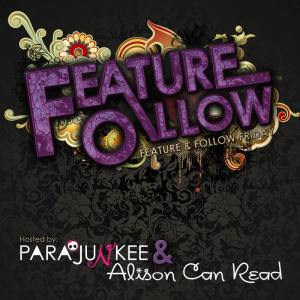Book Talk: Should eBooks be valued the same as bound books?
 Apple recently lost a lawsuit that claimed they were teaming up with certain publishers to push the $9.99 eBook limit that is set on Amazon and sell the books instead for $12+. Apple's reasoning being that eBooks are the same as bound books and should ultimately be valued the same.
Apple recently lost a lawsuit that claimed they were teaming up with certain publishers to push the $9.99 eBook limit that is set on Amazon and sell the books instead for $12+. Apple's reasoning being that eBooks are the same as bound books and should ultimately be valued the same.I buy eBooks for 2 reasons: they're cheap and they're at my fingertips.
Bound books will always be my true love. I'm one of those that enjoys the feeling and smell of a good book. To me, eBooks lack value when compared with bound books for the following reasons:
1.) You're never quite sure of the quality until you buy it (publishing, editing, formatting etc.). Granted, you can return it - but it's considered bad practice and Amazon will not allow you to return any more books after you hit a certain mark. (Rumor is 30ish - and if you read a lot, you can hit that mark pretty easily)
2.) You can't loan them as easily to anyone. Granted, some eBooks have the loan feature, but not all friends and family have an eReader. The great thing about a physical book is that if you like it you can pass it to family and friends.
3.) They can get lost in cyber space. Ever had an eBook just walk off from your kindle? I have. Luckily when I contacted customer service I received my money back. There's a certain insurance with having a physical copy in your hand.
Your thoughts?



Yeah, I think they should be cheaper since they're not actually the real thing, and they don't have pages, front covers etc.
ReplyDeleteThat was my obvious stance when I first wrote this, but after hearing from others on the price of eBook formatting and publishing, I guess it can actually cost just as much. Of course, that's if you have it professionally done. Many do not, and their production costs are lower. It's really hard to say. I agree with one of the comments that suggested keeping the same percentage profit margin. So if your making 60% for every print book, you should be making the same for the eBook. I think that makes the most sense so far. But I'm still torn, because if the eBook just happens to have the same costs as the print book, I don't necessarily think that the price should be the same. I still value the print over the eBook. So then, profit margins don't really work...
ReplyDeleteI am a traditionally published writer which means my manuscripts are converted into hardback books at no cost to me. The trouble is, I don't sell that many even though I am still contracted to my publisher. Once I had retrieved the paperback rights to seven of my titles, I published them on Amazon in paperback and Kindle. The cost to me was sweat and tears, and a huge learning curve. But now I am selling more books (not that many!) than my publisher managed before the e-book revolution. I prefer books rather than e-books, but I'm grateful for the financial returns from the latter.
ReplyDeleteThat is a good point. From a selling perspective you are more likely to get your book out there with the eBook format than paperback these days. And eBooks have more of an ability to "sell themselves" because you can usually look at chapter samples before you buy - which I think is great! But by no means does that mean eBooks are easier to handle from a marketing standpoint. That's actually a major topic I've been talking to some publishers about - how to effectively market your book when not using a major publisher (or if the publisher you're using does a poor job)
ReplyDeleteMarketing for me presents two problems: 1). Am I promoting in the right place?. 2). How much can I afford to spend?. I don't think I'll ever manage to crack the first one, but I know my limits with the second.
ReplyDelete